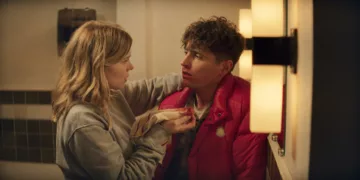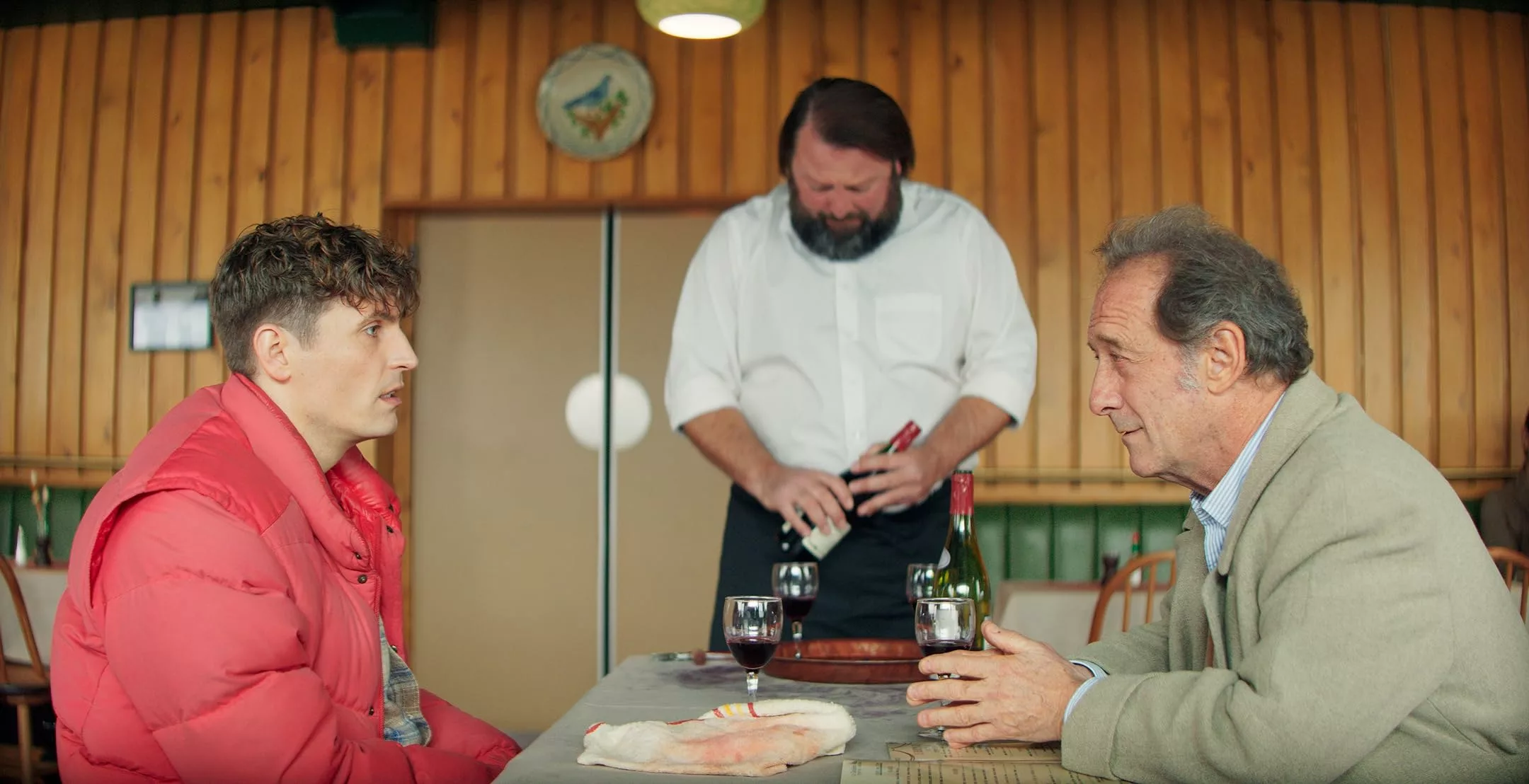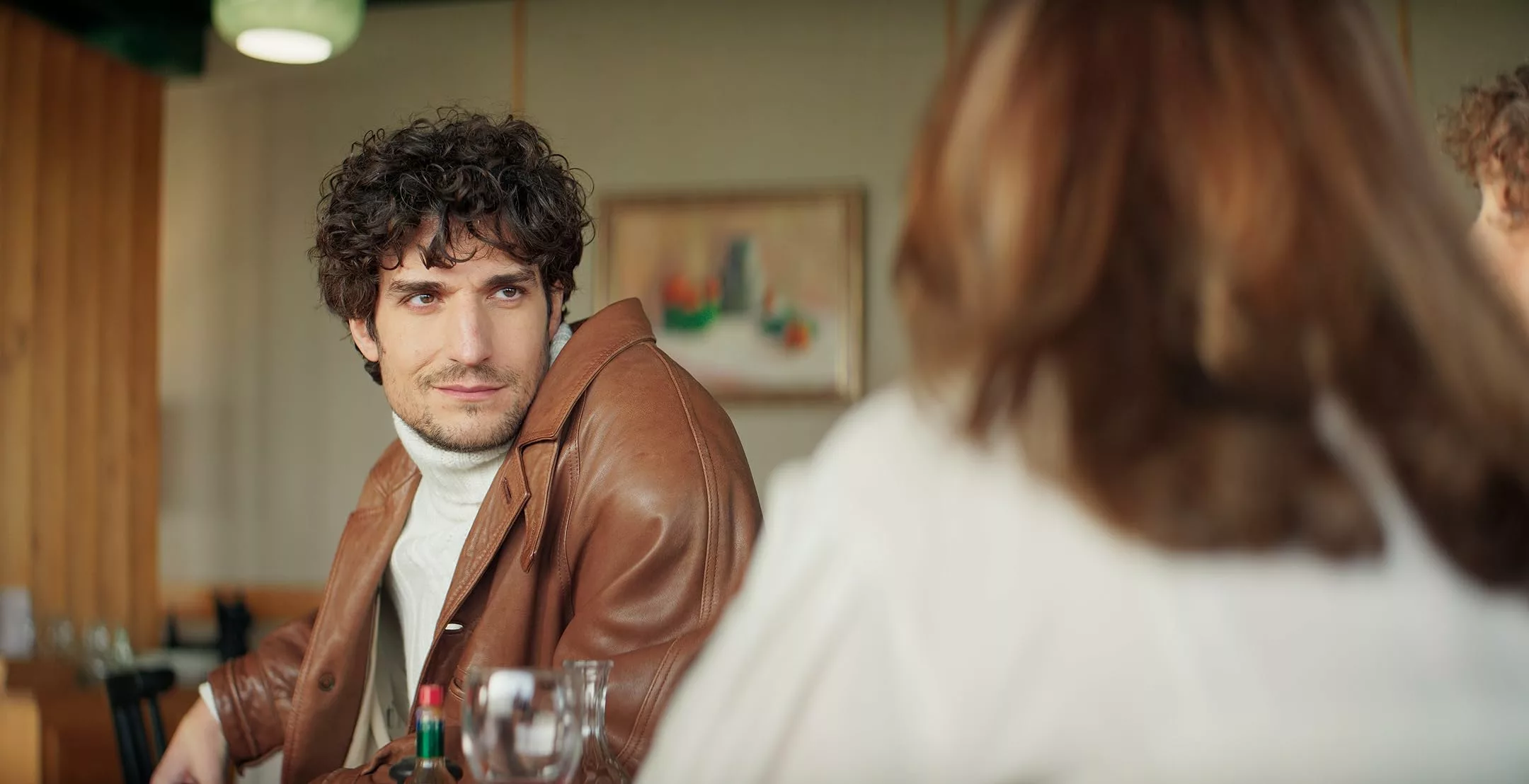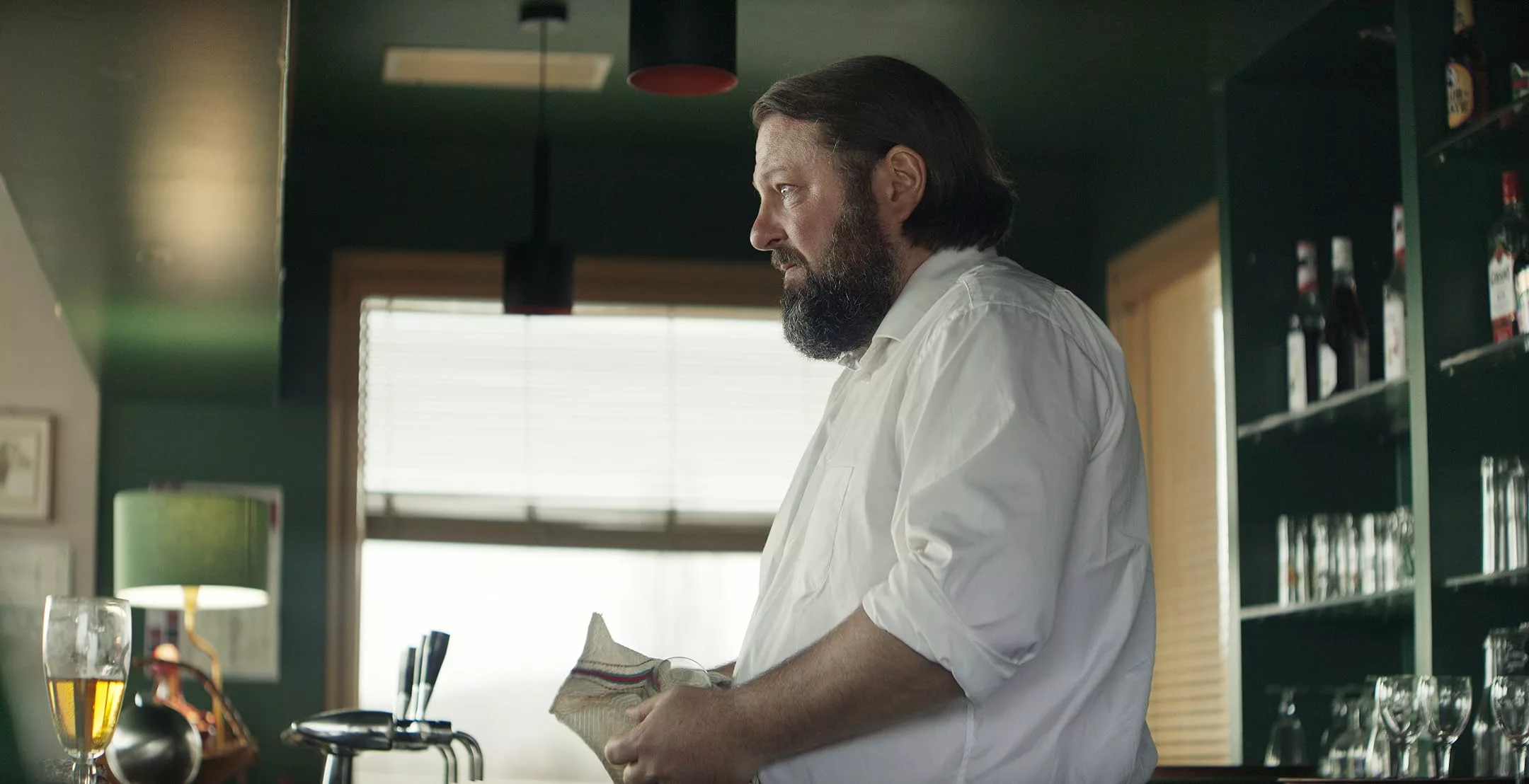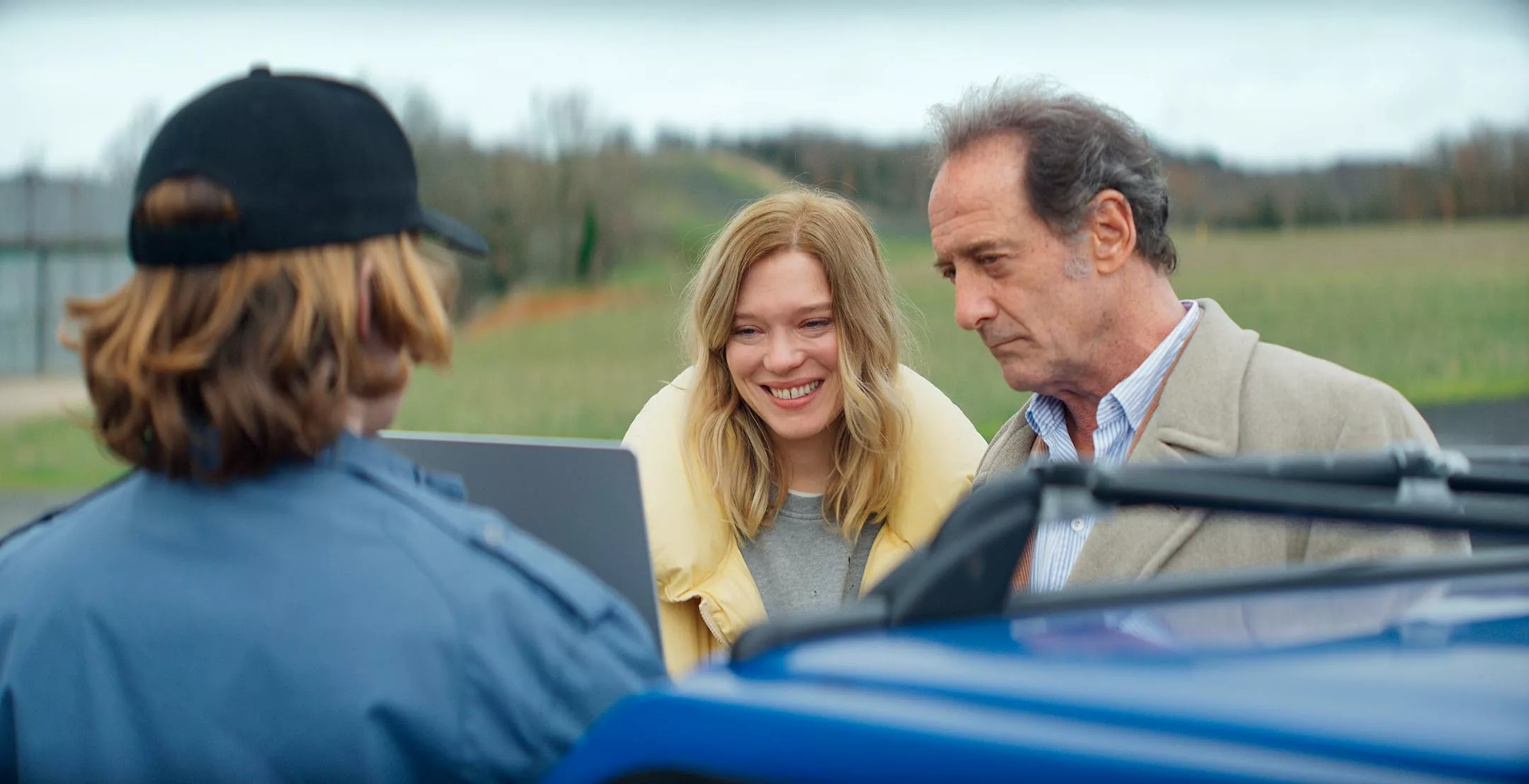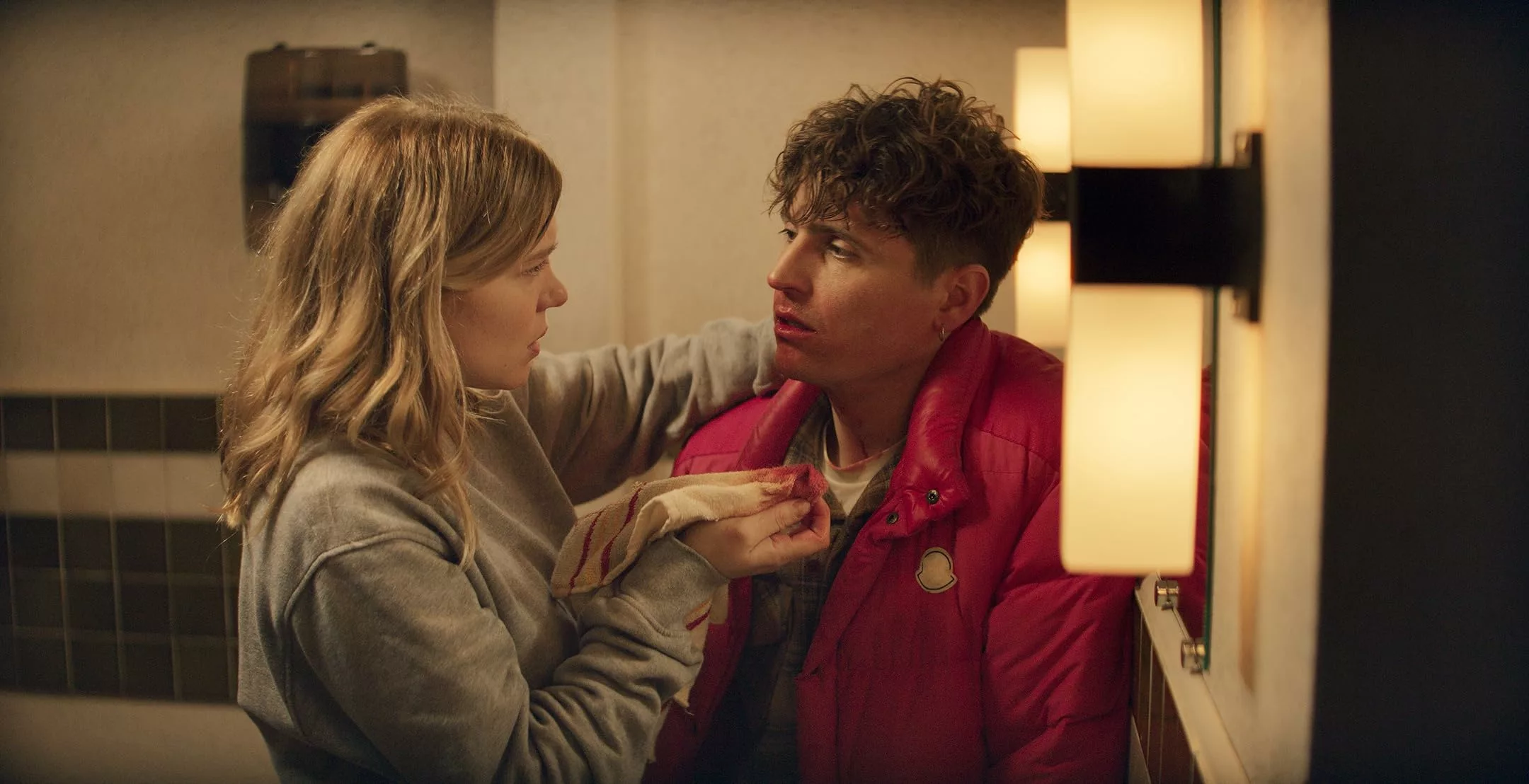Quentin Dupieux has carved out a unique place for himself in French cinema with his absurdist comedies that turn expectations on their heads. Releasing a new film almost every year, Dupieux relies on a do-it-himself approach to craft odd tales involving slapstick situations and surreal twists. From tires with sinister desires to giant fly characters, his movies have a deceptively silly surface but reveal thoughtful meditations on existence when examined closer.
Dupieux’s latest, The Second Act, finds the director poking fun at his own profession. The movie centers on a group of well-known French actors preparing to film a completely forgettable romantic comedy. But this is no ordinary production; the cast is fully aware they’re acting in a bad movie. They continually break character to joke about the script, criticize each other’s performances, and air personal grievances. As they struggle through the vapid story, it becomes unclear where the acting ends and reality begins.
While The Second Act entertains with its amusing metacommentary and star power, ultimately it doesn’t develop its promising concept in a truly meaningful way. Dupieux teases deeper insights but rarely delves below the surface, leaving viewers wishing the film took more risks with its unusual premise.
Behind the Scenes at The Second Act
As David and Willy stroll through the woods, their offhand chatter soon turns to the production they’re involved in—and not in a good way. You see, David is less than pleased with his role and would much rather pawn off his character’s love interest, Florence, onto his friend Willy.
This unhappy pair is joined by the affable yet dignified father figure Guillaume and the hopelessly romantic Florence herself. Though the four signed on for a generic romantic comedy, none are truly feeling it. Each sees straight through the paper-thin characters and pre-packaged story dangling before them.
So when the opportunity arises to poke fun at their own roles and the creative process in general, none can resist snatching it up. Whether lamenting stilted dialogue or debating the true purpose of cinema, this is a troupe all too eager to hijack the fourth wall. And with such talented performers as Louis Garrel, Léa Seydoux, and Vincent Lindon along for the ride, their critiques and improvised asides are indeed very amusing.
Under Quentin Dupieux’s guidance, the story plays out not so much as a conventional movie but as an elaborate commentary on movies themselves. Real-life reputations and behind-the-scenes drama merge seamlessly with on-screen antics. In blurring reality and fiction at every turn, Dupieux invites us to laugh along with his stars as they gleefully skewer their mediocre material. It’s a playful, high-concept premise delivered with Gallic charm and not a small dose of wit.
Cinematic Self-Consciousness
Right from the start, Quentin Dupieux’s latest film toys with the boundary between fiction and reality. In their opening scene, actors Louis Garrel and Raphaël Quenard acknowledge the camera filming them, warning of the risks of certain unacceptable statements. This brief moment immediately signals that the Second Act will scrutinize its own creation.
The characters similarly dissect their project throughout. During an early meet-up at a remote restaurant, Vincent Lindon grows furious over the inanity of his lines. Léa Seydoux also often explodes in frustration with the production and her co-stars’ antics. Their criticisms, while amusing, reveal just how disenchanted these personalities have become.
Dupieux clearly aims to mine humor from deconstructing standard cinematic artifice. By casting big names like Seydoux and Lindon as variants of their public personas, he blurs reality with the fiction within his fiction. Scenes frequently cut between characters critiquing the film and playing out its contrived romance-comedy plot. This doubling enhances the comedic effect of seeing these experienced talents constrained by such trivial material.
However, sustained self-analysis proves less engaging than the initial promise suggests. While metalayers of artifice generate intermittent laughs, the film struggles to compellingly build upon this idea. Repeatedly puncturing illusions loses impact without deeper insights into the nature of performance or storytelling. Subversions also risk seeming like easy targets or simply reasserting convention with a wink. As a sustained critique of creative practice, The Second Act demonstrates more surface wit than substantial provocation.
Perhaps Dupieux intends primarily to amuse, not challenge. Even so, cinematic navel-gazing succeeds best when wed to meaningful thematic exploration, not mere recursion. By centering on recognizable stars satirizing their public images without probing the essence of their medium, the film entertains yet remains aesthetically lightweight. Its experiment proves clever conceptually but leaves a minimal lasting impression.
The On-Screen Send-Up
Quentin Dupieux’s latest film, The Second Act, aims to satirize the pomposity and formulas that permeate the movie business. Four skilled French actors—Léa Seydoux, Louis Garrel, Vincent Lindon, and Raphaël Quenard—play caricatures of themselves as they become embroiled in making a ridiculous romantic comedy. Their characters break character to air grievances and critique the very production they’re participating in.
Dupieux sets his sights on lampooning the egoism endemic to celebrities and the tired tropes cynically churned out by the industry. The actors scoff at having to recite trite dialogue and indulge in clichés. Lindon grows especially contemptuous, believing dedicated thespians like himself deserve better than this drivel. However, their sniping often feels more like poking mild amusement at peripherals rather than penetrating the core problems.
Some jabs at #MeToo, political correctness, and “cancel culture” try to skewer touchy modern debates but end up missing the mark. A rambling scene debates these issues in an uncomfortable way without clarifying the filmmaker’s stance. Whether critiquing scandals or formulas, Dupieux’s observations tend to scratch surfaces instead of cutting deep.
The meta-devices and stars are engaging enough to sustain interest. Yet for all its self-conscious antics, The Second Act struggles to say anything truly provocative about cinema’s discontents. Dupieux demonstrates wit in conceiving this absurd scenario, but his barbs meant to expose pretention rarely bite or enlighten. Under its guise of send-up, the film brings little insightful commentary to the very establishment it aims to satirize. Though fun for a time, this amusing bauble proves insufficiently sharp or substantive.
Reviewing The Second Act
Léa Seydoux steals the show in Quentin Dupieux’s metacomedy. As the anxious actress Florence, Seydoux finds humor in even the most mundane moments, erupting in fits of passionate frustration that kept audiences chuckling. Her comedic timing and expressive delivery shine through. We really feel for the beleaguered character, just trying her best in a nonsensical production.
Vincent Lindon and Louis Garrel bring their usual charisma, but their characters do not develop much beyond familiar types. Lindon portrays the grumpy veteran actor weary of frivolous roles. Garrel takes on the charming yet shady leading man without much else distinguishing him. Even Raphaël Quenard, delightfully dim as the hapless Willy, is more of a prop to further the scene than a fully realized person.
The talent of these accomplished actors nearly outweighs the shallowness of their parts. We never learn what truly motivates any character or makes them tick beneath the surface. They serve the purpose of satirizing stereotypes within cinema rather than feeling like rounded individuals. Seydoux comes closest to grounding her character with nuance and quirks that peek through, hinting at untold depths. But for the most part, the performers are left spinning their wheels without substance to sink into.
Despite top-tier performances, the characters remain as two-dimensional as the nonsensical film they attempt to make. With more developed roles, this comedy could have been a smash hit driven by great acting rather than humorous hijinks alone.
All That Glitters is Not Gold
This meta-comedy explores penetrating themes but fails to dig deeper. It takes aim at the artifice of cinema yet remains surface-level in its analysis.
The film acknowledges that any performance is inherently artificial—an actor is never purely being themselves but taking on a role. This creates an interesting dilemma around authenticity and reality that the movie teases us with but leaves hanging. If everything we see is just different layers of illusion, how can we ever grasp the real?
Some of the most thought-provoking moments center around fears over the future of filmmaking. Will innovative human storytellers be replaced by soulless algorithms churning out formulaic dross? As technology marches forward, will cinema lose its magic? These are poignant concerns the movie wisely raises but chooses not to wrestle with. We’re left with more questions than answers.
While skewering the pretensions and egos that permeate the industry, it pulls its punches. The characters remain abstract archetypes rather than fully fleshed individuals grappling with their art and humanity. There is snappy dialogue exploring surface-level meta-narratives, yet there is an absence of tangible insight. Potentially profound issues like cancel culture receive tepid treatment instead of an incisive dissection.
This work teases with ingenious concepts but fails to follow through on its own provocations. All that glitters is not gold, as beneath the glossy veneer lie themes left underdeveloped and a world left only half-explored. With its talent and self-aware framework, this film could have probed deeper but remains enthralled by its own reflection.
Final Thoughts on Quentin Dupieux’s The Second Act
While The Second Act shows glimmers of Dupieux’s subversive wit, it ultimately cannot sustain its promising concept. The film generates some laughs by poking fun at the ridiculous ego and petty grievances inevitable in any creative endeavor. Watching stars like Seydoux, Garrel, and Lindon skewer their own public personas is an amusing way to start.
Yet this becomes the extent of the movie’s bite. Dupieux sets up opportunities to delve deeper into cinema’s manufacturing of illusion and artifice. He could scrutinize how creative works shape and are shaped by our societal faults. But he leaves these themes as mere allusions, preferring easy jokes over insight.
The restaurant setting holds comedic potential to magnify tensions and expose artifice. But repetitive gags wear out their welcome. Subplots teasing deeper issues, like cultural appropriation, only distract without payoff. What starts as self-aware satire grows tired, relying on star charisma over sharp writing.
By the film’s end, its flimsy framework is showing. What began as playful deconstruction collapses under its thin premise. Viewers are left little to chew on after so much potential is surface-deep. For a provocateur of Dupieux’s caliber, more substance was expected. While not without its moments, The Second Act ultimately delivers an experience as formless and fleeting as the illusions it aimed to scrutinize.
The Review
The Second Act
While The Second Act shows glimmers of Quentin Dupieux's subversive talents, it is an uneven film that does not fulfill its promising concept. The movie provides some initial laughs through its self-aware stars skewering their public images. But it fails to develop its deeper themes or sustain its humor through to the end. Dupieux sets up opportunities to scrutinize cinema's artifices, cultural appropriation, and more, yet leaves these half-formed. The repetitive gimmicks wear out their limited welcome.
PROS
- It features a strong cast, including Léa Seydoux, Louis Garrel, and Vincent Lindon.
- Clever premise and some amusing meta-aware gags break down the fourth wall.
- It showcases Dupieux's subversive style and knack for absurdist comedy.
CONS
- Thin plots and underdeveloped themes cannot sustain humor or scrutiny in cinema.
- Repetitive jokes overstay their welcome without delivering insight.
- Fails to live up to the potential of its self-aware concept and talented performers.
